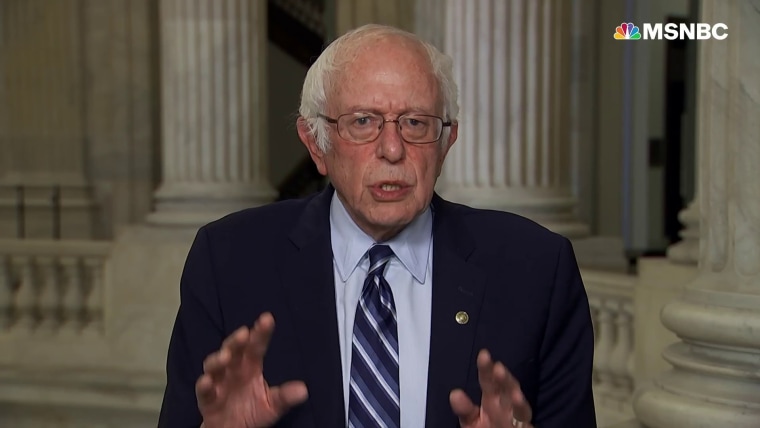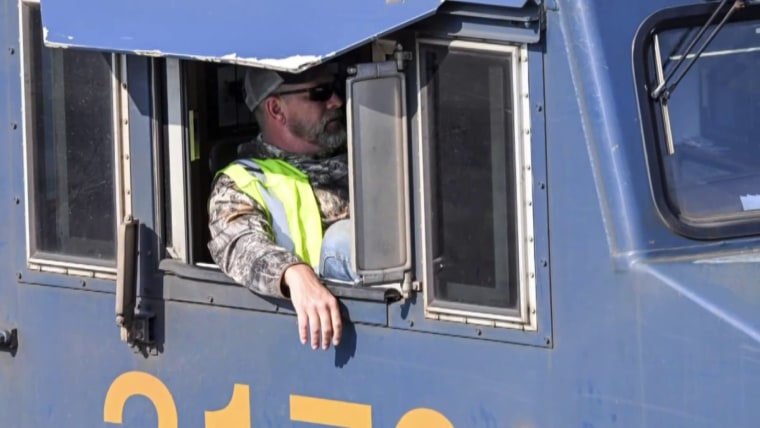President Joe Biden announced Monday that he was siding with freight rail bosses against their workers, who have been at daggers drawn for over half a year. It’s well within Biden’s power to do so — but it is unquestionably a big mistake on his part. Not only is he badly damaging a valuable pro-labor reputation he has hitherto carefully cultivated, but his decision may also well create the very shipping snarls he’s trying to avoid.
Using the Railway Labor Act’s authority, the government forced the two sides to negotiate, which produced a tentative agreement on Sept. 15. But four out of 12 unions, representing more than half of unionized freight rail employees, voted the agreement down. The biggest quibble: The agreement did not have the four days of paid sick leave seen as a bare minimum concession. Since the unions have agreed to respect each other’s decisions, this set the stage for a strike starting Dec. 9.
Not only is Biden badly damaging a valuable pro-labor reputation, but his decision may also well create the very shipping snarls he’s trying to avoid
Under that same act, Congress and Biden can make such a strike illegal simply by passing a resolution. Politico reported that Biden and other top Democrats are worried both about the economic damage a strike would cause and how Republicans would respond to the situation after taking control of the House of Representatives next year. Leaders in Congress are moving fast: The House on Wednesday passed a bill by a vote of 290-137 to avert a strike, sending it over to the Senate. (They also passed a second bill — which includes seven sick days for workers — and will leave it to the Senate to decide how to proceed.)
It’s Biden’s most high-profile labor action to date, and over an objectively tiny demand — just four days of sick leave. It also comes at a time of perhaps the greatest surge in labor militancy since the 1930s, when there is a real prospect of a serious union movement after decades of decline. That alone should make standing with the railway workers political gold for Biden. Not only were Democrats very seriously harmed by the decline of labor’s institutional heft, today, unions have a 71% approval rating in a Gallup Poll, the highest figure since 1965 and a 23-percentage-point increase since 2010.

That’s probably why opportunists like Sen. Marco Rubio, R-Fla., are putting out statements supporting the workers, betting that they will be able to posture as defenders of the working class without actually having to hurt their big-business patrons.
The labor shortage that railways are struggling with only exists, as Matthew Jinoo Buck reported in detail at The American Prospect, because of decades of consolidation and cost-cutting by rail management. Over the last several decades, 40 Class I railroad companies merged together into just seven, cut back their investment in spare capacity, and slashed their workforce to the bone — a set of moves they called “precision scheduled railroading,” or PSR.
PSR requires workers to be on call for up to two weeks, around the clock, and work shifts as long as 12 hours. Trains are now as long as 3 miles and often staffed by just two engineers, meaning lengthy hikes — and, often, associated blockades of roads and passenger trains — if there are any connection problems. No sick leave means people are coming into work with Covid or other illnesses. All that worsens the disruptions of constant travel associated with driving trains all over the country, making ordinary life stuff like going to the doctor difficult or impossible.
By spending as little as possible on labor and overhead, the companies raised profits. By leaving no slack in the freight rail system, with trains and operators both constantly working at full capacity, they ensured that any surge of demand would show up as higher profits instead of more shipping. Sure enough, that’s exactly what happened when the pandemic prompted a massive surge of rail shipping as people shifted spending from services to goods. But the surge in demand was so large that it created giant tangles in the freight system.
With these companies already barely treading water with their current workforce, they might easily be unable to handle the holiday demand
All of this means that workers are frustrated not so much over pay but working conditions. The rail companies have tried to bring back some staff, but their jobs are not competitive anymore with other industries, and their openings have gone unfilled. If Biden and congressional Democrats slap down rail unions over a measly four days of paid sick leave — something any decent country ought to provide as a matter of national policy for every worker — industry insiders (and common sense) forecast a wave of resignations. With these companies already barely treading water with their current workforce, they might easily be unable to handle the holiday demand.
It’s a sad commentary on American history that even this betrayal probably won’t knock Biden out as the most pro-union president since World War II. Previous presidents have done the exact same thing. But Biden has further to fall, having taken more action to help workers than any president since Franklin Roosevelt — and arguably ever. He needs to see that if the White House and the rest of the Democratic Party loudly sided with the rail unions, management would probably see sense sooner or later.
Failing that, if Republicans are serious about siding with workers, Congress could pass a national paid sick leave bill for the whole country and short-circuit the problem — in keeping with the Christmas spirit, one might say. Either way would be better than selling out beleaguered rail workers. As it stands, Biden’s support among unions is poised to jump the tracks altogether.
